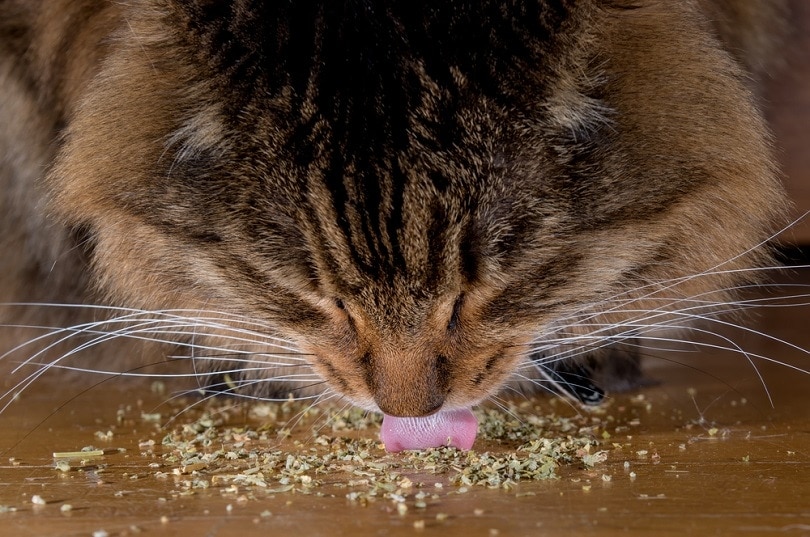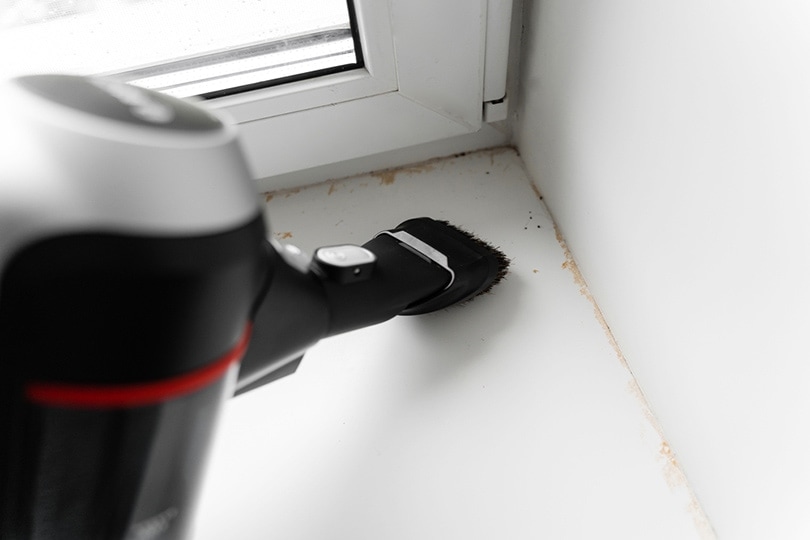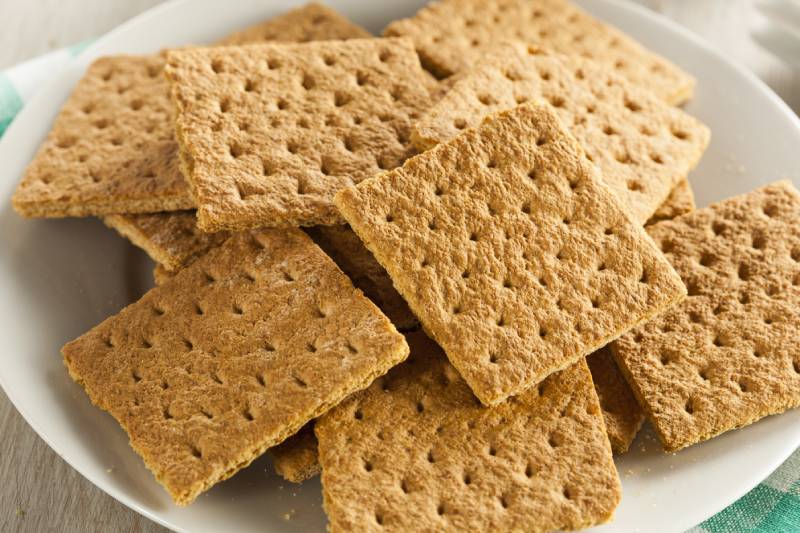What Does Cat Nuzzling Mean? 5 Vet-Approved Reasons for This Behavior

By Misty Layne
Updated on
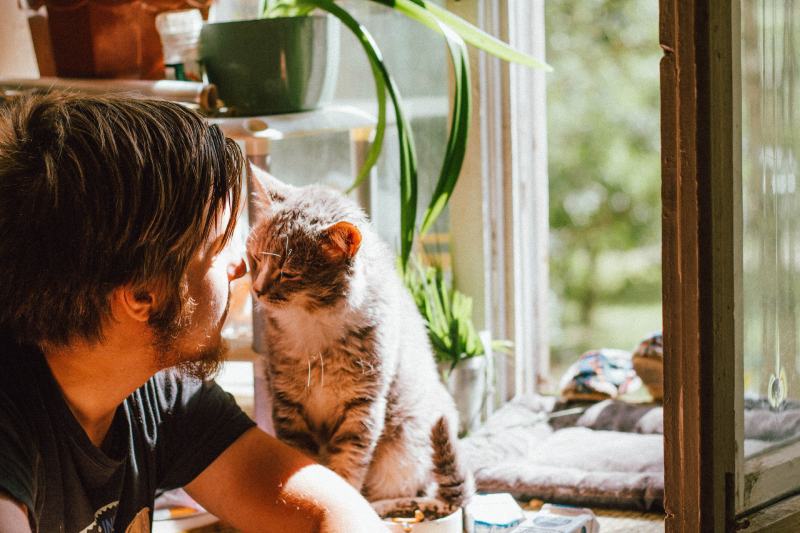
Our feline companions don’t have the gift of oral or spoken language, which means they’re left to communicate with us in other ways—mainly via body language. But deciphering a cat’s body language can be difficult at times. What does it mean when the tail is in that position versus this one? Why is your kitty kneading you at this particular moment? And what does cat nuzzling mean?
When it comes to cat nuzzling, we’ve got you covered. Below you’ll learn how felines nuzzle, the primary reasons they do so, and whether there’s a possibility your kitty is engaging in too much nuzzling. Keep reading!
How Do Cats Nuzzle?
According to the Cambridge Dictionary, nuzzling means “to touch, rub, or press something or someone gently or in a way that shows your love, especially with the head or nose, usually with small repeated movements”.1 And that is exactly what a cat will do (though this nuzzling is often called other things, like nudging, rubbing, or bunting).
Nuzzling can also be done in different ways. You might find your cat rubbing their face against your own or against another body part. Or the kitty might rub their head against yours (or, more often, give you a little headbutt). But why is your cat doing this to you? What does it mean?
What Does Cat Nuzzling Mean?
There are a few reasons why your favorite feline will come up and nuzzle you. Sometimes it’s a bid for attention, while other times, this nuzzling might be a way of letting others know that you belong to kitty. So, if your cat’s been nuzzly lately, it’s most likely because of one of these reasons.
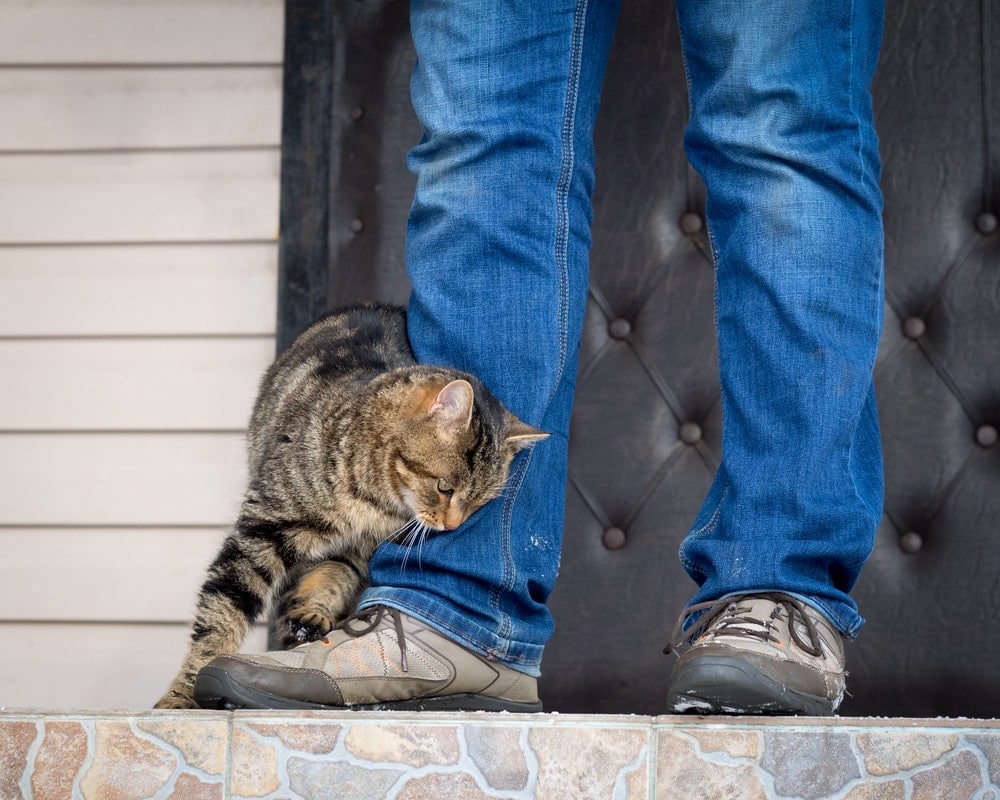
The 5 Reasons Your Cat Nuzzles
1. Saying Hello
If your kitty comes up to nuzzle your leg when you return home after a long day at work or from being away for a few days, it’s a good sign! This is your cat’s way of greeting you and letting you know they’re happy to see you again.
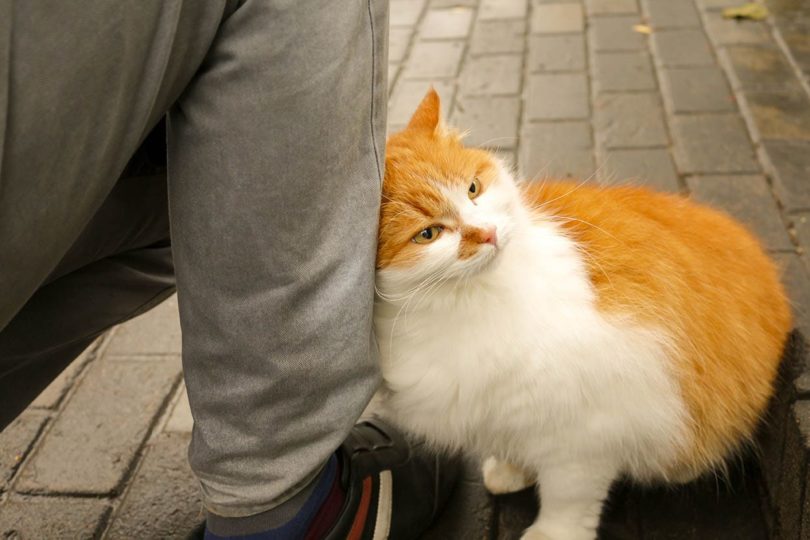
2. Marking Territory
Sometimes your feline will nuzzle you to release chemical messengers. Felines have tons of scent glands throughout their body, with several being in the cheek, forehead, and chin areas. So, when your cat comes up to nuzzle and rub against you, they’re transferring their scent to you.
This scent marking is a claim that lets the rest of the world know the cat has been there and they are claiming you to be part of their “inner circle.” And since scent marking doesn’t last forever, your cat will need to nuzzle against you often to mark you again. Humans can’t detect these facial pheromones, but other cats can. This claiming of territory through nuzzling is also thought to release endorphins in your pet that make them feel happy and safe.
3. Love & Affection
Cats have many ways of showing us love and affection, whether by meowing quietly at us, grooming us, or curling up for a good snuggle. Nuzzling is simply another way a kitty can show its affection! So, if your pet comes up to you while you’re working just to nuzzle against you, they could be saying, “I love you.”

4. Attention Seeking
Speaking of cats nuzzling you while you’re busy doing other things—nuzzling can also be a request for attention. After all, your kitty can’t tell you when they want food, love, or even a cleaner litter box, so they have to grab your focus to let you know they need you. Your pet might also get vocal or start pawing at you to grab your attention while nuzzling you, so be sure to pay attention to what else is going on with the kitty, so you can decipher what they need!
5. Anxious
You do certain things to make yourself feel better when you’re anxious or stressed out. Our feline companions are no different. If there’s been a change in your cat’s routine recently—from moving homes to adding a new animal to the household—your pet could be anxious over it. And some cats take to nuzzling as a way to comfort themselves when feeling stressed and overwhelmed.
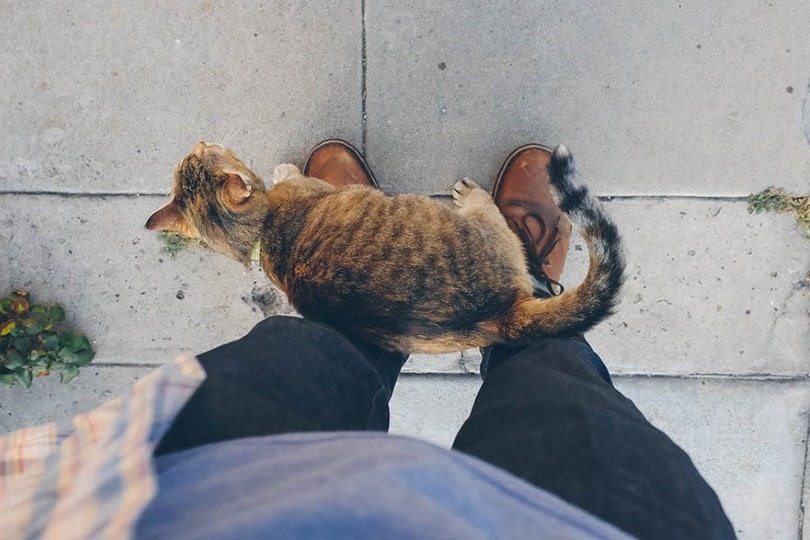
Is It Normal if My Kitty Is Nuzzling Excessively?
As much as nuzzling is a part of your cat’s regular, daily communication, there can be times when nuzzling gets a little excessive (whether your pet is nuzzling you or inanimate objects). And if kitty is nuzzling against things all too often, there could be a possible medical issue, so you should speak with your vet about it. If a medical issue is the underlying cause of excessive nuzzling, you also see other signs, such as:
Nuzzling too often might seem like an odd sign of an illness, but there are several illnesses that can result in this, like: For the most part, your cat nuzzling you is just a way for kitty to communicate. Your cat might be saying hello, showing you affection, or simply wanting your attention for some reason. There are rare instances when nuzzling is a sign of an underlying medical problem, but when that occurs, the nuzzling is usually in excess and accompanied by other signs, such as appetite changes or hair loss. Overall, though, you should enjoy your kitty’s nuzzling and perhaps return them with some cuddles! Featured Image Credit: Yuliya kota, Pexels
Conclusion



